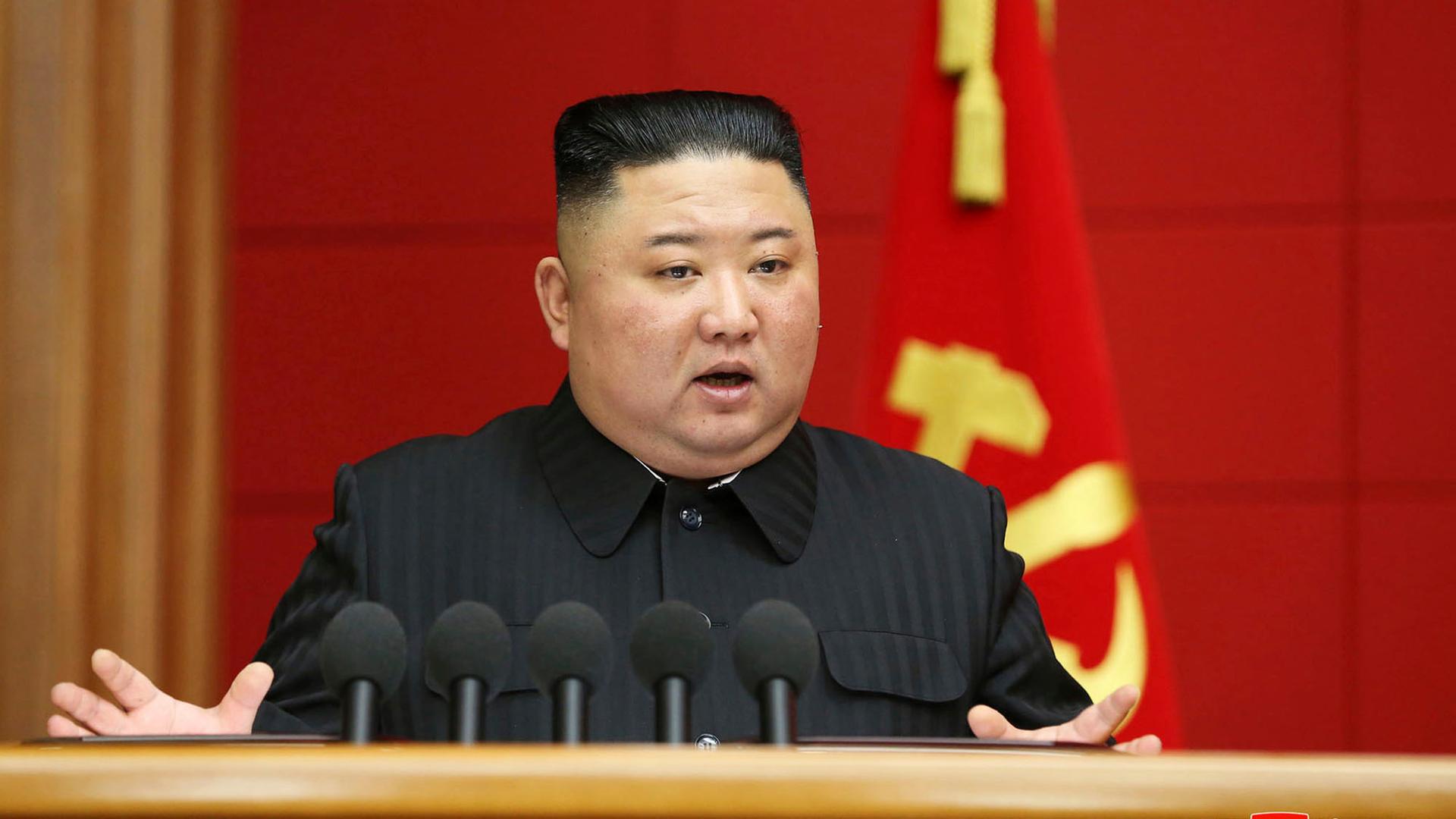Despite claiming zero COVID-19 infections, North Korea is set to receive nearly 2 million doses of the coronavirus vaccine.
Observers say strict border controls and international sanctions might have done more to worsen the situation on the ground.
When news first broke over a year ago about the discovery of a new pneumonia-like disease in Wuhan, China, neighboring North Korea was one of the first countries to seal its border. Entry from abroad is still banned, and getting out is nearly as difficult — just ask these Russian diplomats.
Now, through a new global initiative known as the COVAX Facility program, North Korea will reopen its border to receive the COVID-19 vaccine. The World Health Organization’s consortium of government, private and nonprofit agencies announced recently that it will provide North Korea with 1.7 million doses of AstraZeneca’s version of the vaccine.
North Korea’s population is estimated at around 25 million.
It is unclear how delivery and distribution of the vaccine will take place, and COVAX officials did not respond to The World’s request for an interview.
Jerome Kim, director-general of the Seoul-based International Vaccine Institute, which is currently not involved with any programs in the North, explains that given the country’s limited resources and infrastructural challenges, the AstraZeneca vaccine is perhaps the best option for now.
“AstraZeneca is probably the vaccine that they can handle most easily,” Kim said, noting that unlike some other vaccines that need to be stored in freezing temperatures, this one can be kept in normal refrigerator conditions. It also could be effective after only one shot, he added.
“It’s a much more robust system from a public health perspective,” Kim said.
But some other medical professionals say that any attempts to carry out vaccinations or other public health campaigns in North Korea are hindered by international sanctions that are meant to punish Pyongyang for its nuclear weapons program.
Kee Park, director of the North Korea program at the Korean American Medical Association, explained that medicine and medical products are technically exempt from import bans, but aid groups are very cautious about running afoul of US and UN sanctions.
“These UN agencies don’t take any chances, but it creates additional layers of administrative hurdles,” he said.
Vetting products intended for vaccination drives for security risks could slow down North Korea’s ability to achieve herd immunity, Park said.
“The vaccines just don’t magically get injected into people’s arms. … So, they will probably need additional cold-chain type of equipment, infrastructure or refrigeration units. syringes, PPE and all kinds of things that go along with the vaccination program.”
“The vaccines just don’t magically get injected into people’s arms,” he said. “So, they will probably need additional cold-chain type of equipment, infrastructure or refrigeration units, syringes, PPE [personal, protective equipment] and all kinds of things that go along with the vaccination program.”
Parks said despite these complications, he’s confident that North Korean doctors, with whom he’s worked side-by-side before, are capable of carrying out a successful COVID-19 vaccination campaign as they’ve done with other diseases.
But Sokeel Park, who heads the Seoul chapter of Liberty in North Korea (LINK), said the North Korean regime might not open back up or relax domestic travel bans even after the pandemic is over.
“This is very worrying. … The North Korean government may actually feel like it’s got used to a certain level of being closed off, and even increased restrictions internally and if they feel like they can maintain that kind of system, they may actually not move to try and resume prepandemic openness.”
“This is very worrying,” Park said. “The North Korean government may actually feel like it’s got used to a certain level of being closed off, and even increased restrictions internally and if they feel like they can maintain that kind of system, they may actually not move to try and resume prepandemic openness.”
Park added that these tougher restrictions could be North Korea’s post-COVID-19 “new normal.”
Park said the restrictions have also halted nearly all commerce with China, Pyongyang’s closest ally and trading partner. This isolation, he said, has created an even more precarious situation for many North Koreans.
“From what we hear, the last year has been a disaster,” Park said. “This is creating a massive shortage in all sorts of goods, including basic necessities like soap and toothpaste.”
Park also said, through sources in North Korea, that food prices have risen during the pandemic, making some products like corn out of reach for the country’s poorest.
“We’re very worried about hunger or people starving to death,” he said.
Pyongyang has also ignored Seoul’s repeated offers of humanitarian aid and even fatally shot a South Korean government official at sea last year because it allegedly feared he was a carrier of the coronavirus.
While Pyongyang credits its swift lockdown for keeping the nation COVID-19-free, most outside observers doubt this.
The pandemic appears to have further cut off North Korea from the rest of the world.
Our coverage reaches millions each week, but only a small fraction of listeners contribute to sustain our program. We still need 224 more people to donate $100 or $10/monthly to unlock our $67,000 match. Will you help us get there today?
